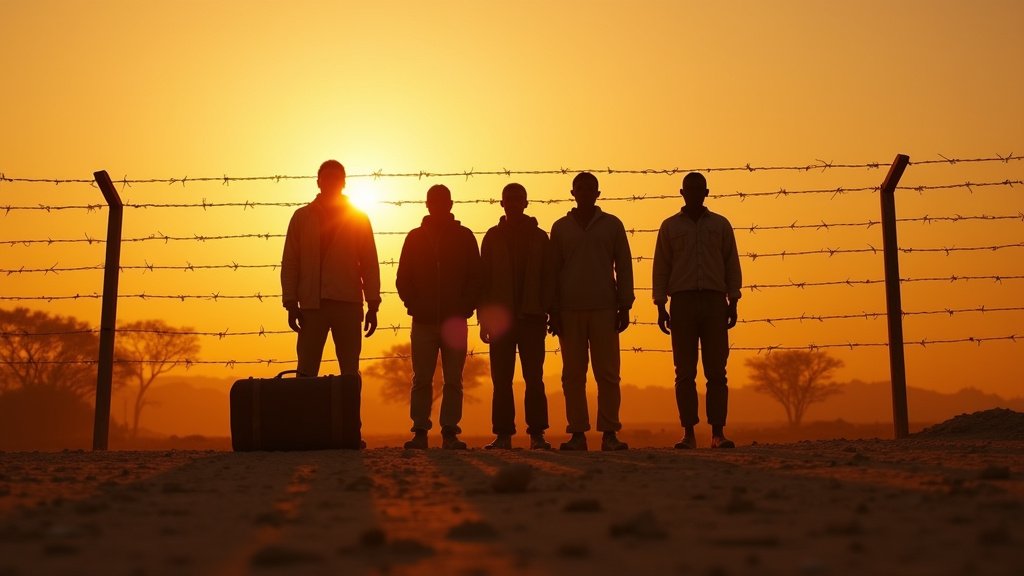United States Expels Migrants to African Nation Under Controversial Program
The United States has deported a group of individuals to the African kingdom of Eswatini, sparking renewed debate over the controversial third-country deportation program. This program, largely shrouded in secrecy, has come under scrutiny for its handling of migrants and its operational practices. The deportations mark a significant expansion of a policy that has been in place, albeit in a limited capacity, for several years.
This recent action saw the expulsion of five immigrants to Eswatini. The U.S. Department of Homeland Security has described these individuals as “barbaric” criminals, a characterization that has raised concerns among human rights advocates and legal experts. The exact nature of the alleged crimes committed by these deportees has not been publicly disclosed, further fueling criticism of the program’s lack of transparency.
Third-Country Deportation Program: A Growing Trend
The third-country deportation program, as the name suggests, involves the removal of individuals from the United States to nations other than their country of origin. Eswatini, a landlocked nation in Southern Africa, is now a destination for migrants removed under this initiative. This approach to immigration enforcement has been criticized for its ethical implications and the potential for creating complex humanitarian challenges in the receiving countries.
The program’s expansion has been a notable development, particularly during the Trump administration. The administration’s policies towards immigration enforcement were well-documented, and these actions align with the stated goals of prioritizing strict enforcement. The rationale behind using third countries for deportations often centers on logistical challenges or strained diplomatic relations with the migrants’ home countries. However, critics argue that such programs can be exploitative and disregard the rights of those deported.
Details of the Deportations and Their Aftermath
While specific details surrounding the recent deportations to Eswatini are scarce, the available information points to a complex operation involving various governmental agencies. The U.S. Department of Homeland Security plays a central role in identifying and removing individuals targeted by the program. Details regarding the legal processes involved, the types of crimes that lead to inclusion in the program, and the procedures for appealing deportation orders are largely unknown, making it difficult to assess the program’s fairness and effectiveness.
Furthermore, the long-term consequences for the deportees are a subject of ongoing debate. The deported individuals face an uncertain future in Eswatini, where they may encounter challenges related to housing, employment, and access to social services. The circumstances surrounding their arrival and integration into Eswatini are a significant cause for concern among international observers.
Concerns and Future Implications
The use of the “barbaric” label by the Department of Homeland Security has been met with significant backlash. Critics argue that such language dehumanizes the deportees and undermines the principles of due process and fair treatment. The lack of transparency surrounding the program further exacerbates these concerns, as it hinders the ability of independent organizations and the public to scrutinize its operations.
The ongoing expansion of the third-country deportation program raises several questions about its long-term implications. Will more countries be added as destinations? What protections, if any, are in place to ensure the safety and well-being of the deportees? The future of this program will likely depend on how the government chooses to address these concerns and the level of public and international scrutiny it faces. The expansion of the program under the Trump administration sets a precedent that could have lasting effects on international migration and human rights.

